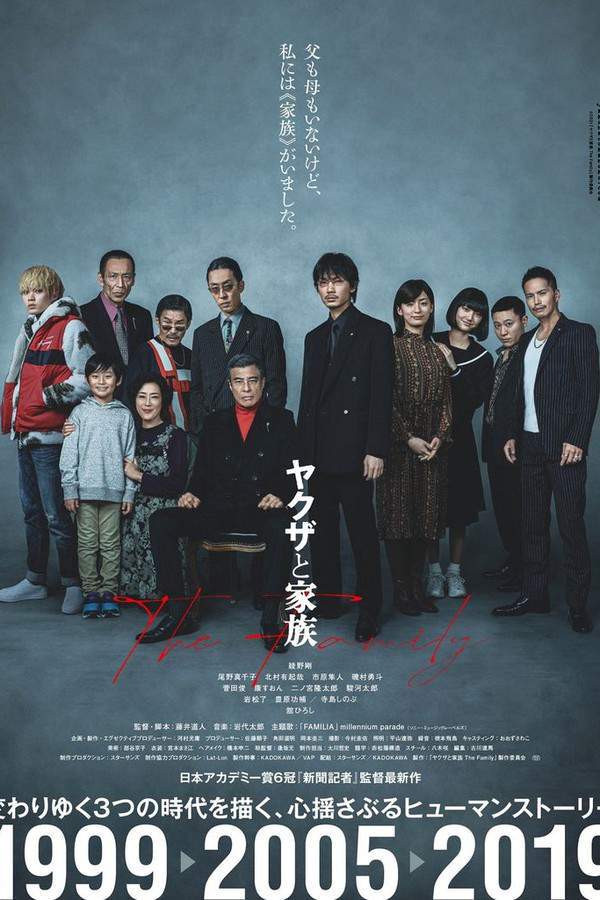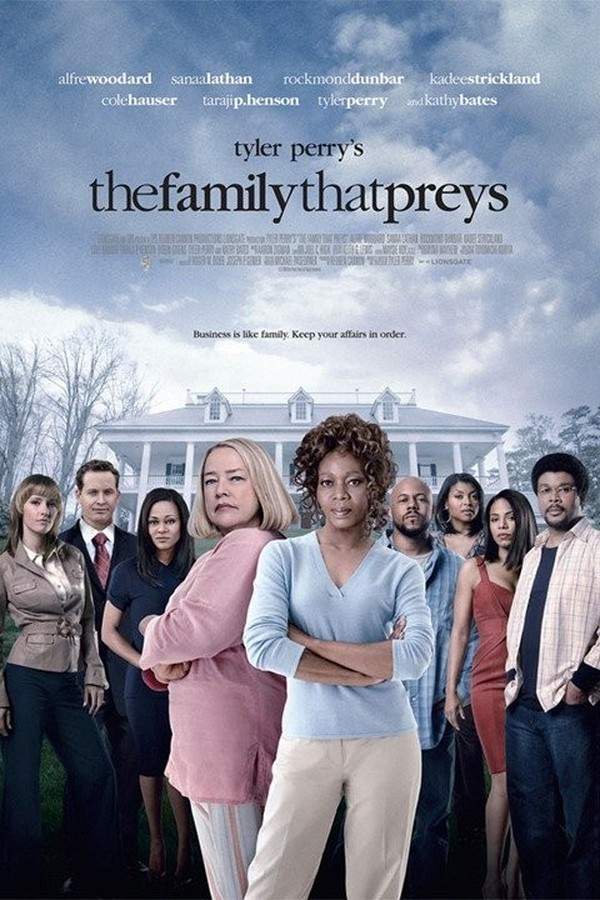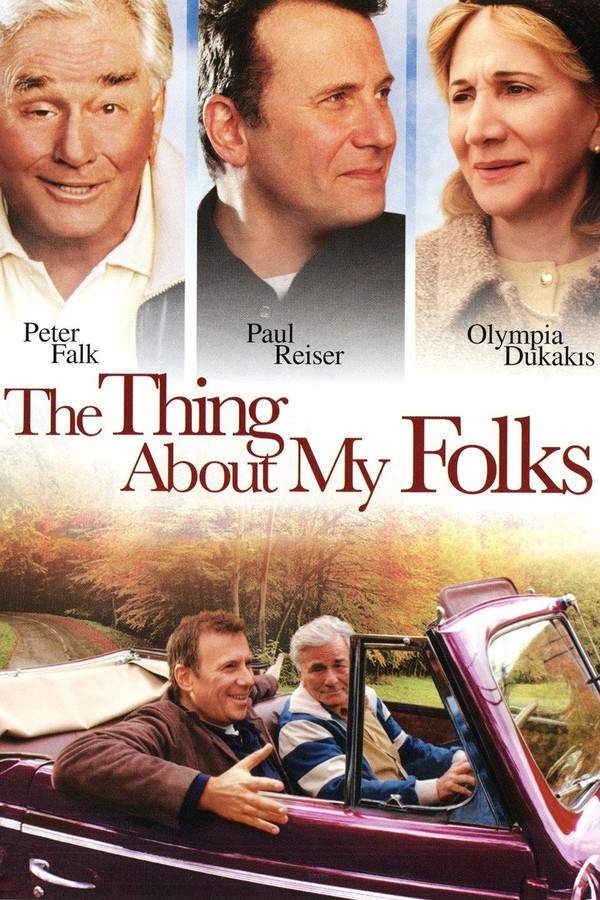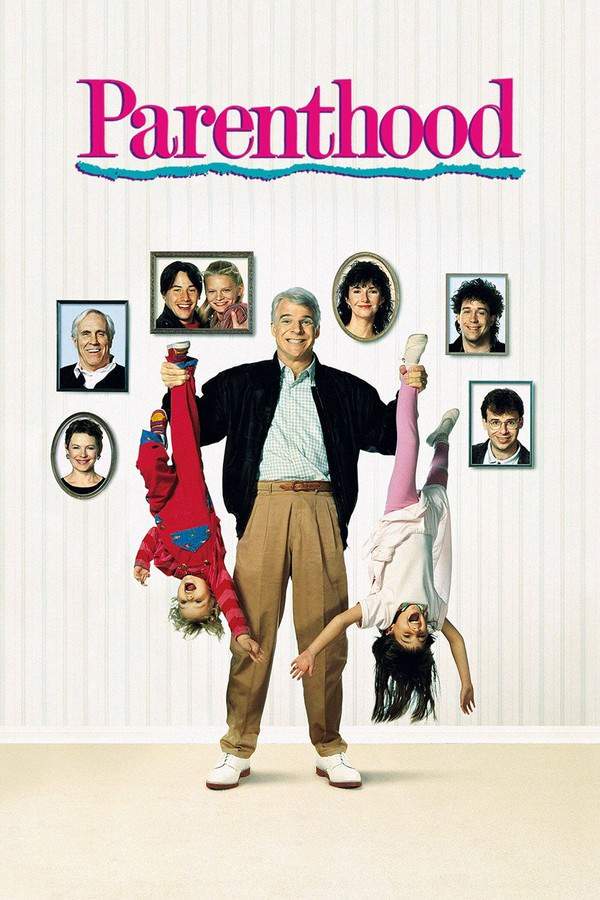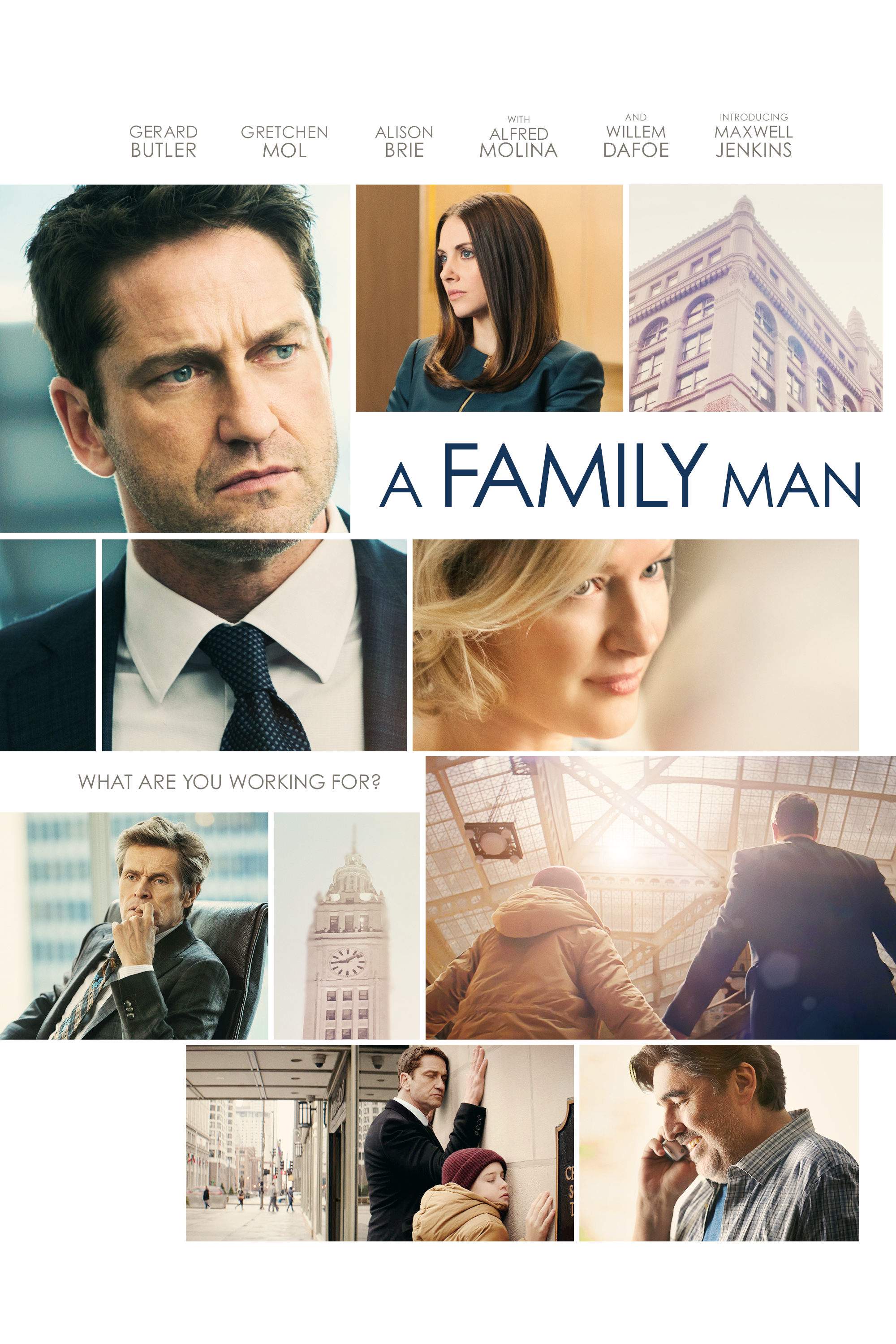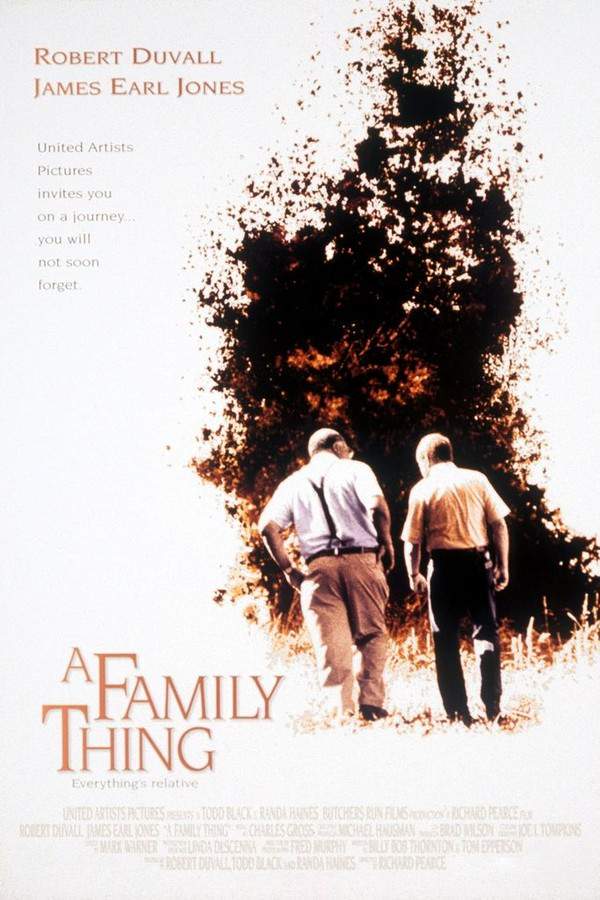
A Family Thing 1996
Directed by

Richard Pearce
Made by
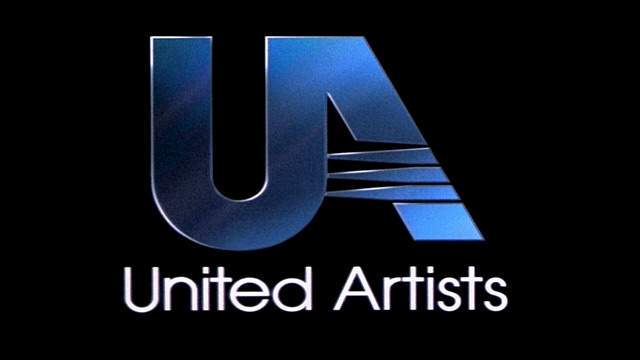
United Artists
Test your knowledge of A Family Thing with our quiz!
A Family Thing Plot Summary
Read the complete plot summary and ending explained for A Family Thing (1996). From turning points to emotional moments, uncover what really happened and why it matters.
Fifty-something Arkansas redneck Earl Pilcher Jr. embarks on a life-altering journey upon discovering that his biological mother was black and that he has a half-brother named Ray, who resides in Chicago. Determined to connect with Ray, Earl drives his pickup to the windy city, only to find that their reunion is anything but warm. Ray harbors resentment, blaming Earl’s racist father for their mother’s tragic passing, which now casts a shadow over his feelings towards Earl.
After an uncomfortable confrontation, Earl’s plans are derailed when his pickup gets carjacked, resulting in a severe head injury. In a twist of fate, Ray, now a Chicago cop, is coerced into taking Earl from the hospital back to his home under the doctor’s orders that Earl must stay awake. To mask their family relationship from their Auntie T., Ray fabricates a tale about being Korean War buddies with Earl. However, Auntie T., who is blind, readily sees through the ruse, recognizing Earl’s true identity.
When Ray’s son, Virgil, arrives from his job as a city transit bus driver, he is confronted with the unexpected sight of Earl sleeping on his couch. Suspicion drips from Virgil as he demands to know who this stranger is. Fortunately, Auntie T. steps in, insisting that the truth be revealed. This revelation prompts Earl to consider leaving in search of a motel. However, an argument ensues between Earl and Ray, leading to a physical scuffle. The confrontation takes a stark turn when Earl makes a racially charged remark, igniting Ray’s fury. As Ray storms off, he declares, “If you need any more help, don’t call me. I’m through helping you!”
That night, hit hard by his choices, Earl seeks refuge under a bridge alongside a group of homeless individuals. Meanwhile, Ray, scrapping his anger after a stern talk from Auntie T., attempts to find Earl, reaching out to the police dispatcher to keep an eye on his brother. The next day brings mixed news when Virgil learns that Earl has been discovered.
The family unites with Virgil’s ex-wife, Ann, and their daughters, Kindra and Danielle, for a picnic. During this gathering, Earl gains insight into Virgil’s past and the dreams that were dashed after a knee injury curtailed his football career. This moment fosters a deeper bond as Earl urges Virgil to seek hope and pursue positives in life. Virgil, initially resistant, begins to reflect on Earl’s encouraging words.
Back at home, Auntie T. presents Earl with a photograph of their mother and recounts the heartwarming yet bittersweet tale of Earl’s birth, revealing a moment where Ray cradled Earl as a newborn and proclaimed, “This is my baby.” The story touches both brothers deeply, leading them to confront their shared past.
In a poignant turn of events, Ray takes Earl to reclaim his stolen truck from the police impound lot. Despite its rough condition—marked with bullet holes from a robbery—the truck signifies a path back to their roots. Together, the brothers set off on a heartfelt journey back to Arkansas to pay respects at their mother’s grave, embarking on a healing journey marked by their newfound connection.
A Family Thing Timeline
Follow the complete movie timeline of A Family Thing (1996) with every major event in chronological order. Great for understanding complex plots and story progression.
Earl's Discovery
Earl Pilcher Jr. discovers a shocking truth about his heritage at the age of fifty. He learns that his biological mother was black, which opens up a new chapter in his life as he realizes he has a half-brother named Ray in Chicago.
Journey to Chicago
Determined to reconnect, Earl embarks on a long drive to Chicago to meet Ray. He sets out with mixed feelings, hopeful yet apprehensive about meeting a brother who represents a complicated aspect of his identity.
Unhappy Reunion
Earl’s reunion with Ray is anything but warm, as Ray expresses his resentment towards Earl. This tension stems from their family history, where Earl's racist father played a role in their shared tragedy.
Carjacked
After their uncomfortable confrontation, Earl's plans take a turn when his pickup truck gets carjacked. The incident results in Earl suffering from a severe head injury, complicating his situation further.
Strange Doctor's Orders
In a twist of fate, Ray, who works as a Chicago cop, is ordered to take Earl from the hospital back to his home. The doctors stipulate that Earl must stay awake, adding to the awkwardness of their situation.
Auntie T's Insight
To mask their relationship from their Auntie T., who is blind, Ray fabricates a story about them being war buddies. However, Auntie T. quickly sees through the deception, hinting at her perceptive nature.
Virgil's Confrontation
Ray's son, Virgil, arrives home to see Earl sleeping on the couch, leading to immediate suspicion. Virgil demands to know who Earl is, raising the tension further within the family.
Family Revelations
Auntie T. insists on revealing the truth about Earl's identity, prompting a family dialogue. This leads Earl to consider leaving, as the emotional weight begins to take its toll.
The Argument
A heated argument breaks out between Earl and Ray, resulting in a physical scuffle. Earl’s racially charged remark ignites Ray's anger, leading to a significant fallout where Ray storms off.
Seeking Refuge
Feeling lost and regretful, Earl seeks refuge under a bridge alongside a group of homeless individuals. This moment of reflection highlights his struggle with identity and the consequences of his life choices.
Ray's Change of Heart
After a sober conversation with Auntie T., Ray decides to find Earl. He reaches out to the police dispatcher to keep an eye on his brother, showing his commitment to mend their relationship.
Family Picnic
The family gathers for a picnic that includes Virgil's ex-wife, Ann, and their daughters, Kindra and Danielle. During this gathering, Earl learns about Virgil's past and encourages him to find hope despite past disappointments.
Auntie T's Story
Back at home, Auntie T. presents Earl with a photograph of their mother. She recounts a touching story from Earl's birth, where Ray cradled him as a baby, helping to bridge the gap between the brothers.
Retrieving the Truck
In a notable turn of events, Ray takes Earl to reclaim his stolen truck from the police impound lot. Although the truck is damaged, it symbolizes their shared past and the beginning of healing.
Journey Back to Arkansas
With hearts and minds set on reconciliation, the brothers embark on a journey back to Arkansas. They plan to pay their respects at their mother’s grave, solidifying their newfound connection and commitment to family.
A Family Thing Characters
Explore all characters from A Family Thing (1996). Get detailed profiles with their roles, arcs, and key relationships explained.
Earl Pilcher Jr.
Earl is a fifty-something redneck from Arkansas who embarks on a journey of self-discovery after learning about his mixed heritage. Initially defined by his prejudices, Earl evolves as he faces harsh truths about his family and ultimately seeks redemption by understanding his brother and embracing his identity.
Ray
Ray, a Chicago cop, is initially filled with resentment towards Earl for the pain his father caused their family. Fiercely protective and burdened with emotional scars, Ray's journey is about reconciling with his past while navigating the complexities of brotherhood and forgiveness.
Virgil
Virgil is Ray's son, caught in the tumultuous dynamics of family drama. Working as a city transit bus driver, he initially views Earl with suspicion but gradually becomes part of the family's journey toward understanding and healing. His character represents the newer generation grappling with legacy.
Auntie T.
Auntie T. is the wise and perceptive matriarch who plays a crucial role in the family's narrative. Despite being blind, she has a keen sense of family dynamics and provides a grounding influence, encouraging reconciliation while revealing heartwarming stories from the past.
A Family Thing Settings
Learn where and when A Family Thing (1996) takes place. Explore the film’s settings, era, and how they shape the narrative.
Time period
The film unfolds in contemporary times, highlighting issues of race, family, and personal identity that resonate with modern audiences. It reflects societal challenges that persist today, particularly regarding the legacy of race and the search for connection in the face of adversity.
Location
Arkansas, Chicago
The movie contrasts the rural setting of Arkansas, known for its southern charm and strong familial ties, with the bustling urban landscape of Chicago, a city renowned for its cultural diversity and challenging social dynamics. Arkansas serves as a backdrop for Earl's roots, while Chicago symbolizes the complex relationship between him and his half-brother Ray.
A Family Thing Themes
Discover the main themes in A Family Thing (1996). Analyze the deeper meanings, emotional layers, and social commentary behind the film.
🧩
Identity
The struggle for self-discovery bridges the characters' journeys. Earl grapples with his roots and the impact of his family's history on his identity, while Ray wrestles with resentment and a desire for reconciliation. Their relationship symbolizes a broader exploration of familial ties and individual identity.
🤝
Reconciliation
The theme of reconciliation is central as the brothers confront their troubled past and strive to form a bond despite their differences. Their journey from confrontation to understanding highlights the healing power of family, underscoring the importance of forgiveness and acceptance in rebuilding relationships.
💔
Loss
Loss permeates the narrative, stemming from the brothers' shared grief over their mother's passing. This loss shapes their interactions and becomes a catalyst for them to explore their feelings, leading them to uncover the depths of their shared history and the pain that has kept them apart.

Coming soon on iOS and Android
The Plot Explained Mobile App
From blockbusters to hidden gems — dive into movie stories anytime, anywhere. Save your favorites, discover plots faster, and never miss a twist again.
Sign up to be the first to know when we launch. Your email stays private — always.
A Family Thing Spoiler-Free Summary
Discover the spoiler-free summary of A Family Thing (1996). Get a concise overview without any spoilers.
In the rural stretch of Arkansas where tradition holds tight and secrets linger in the amber light of evening, Earl Pilcher Jr. lives a life built on the stories his family has told him. A gruff, stubborn man rooted in a world of hunting trips and back‑road bars, he carries the weight of a history he believes is his alone. When a long‑buried truth surfaces—his mother was Black and a son he never knew exists in the bustling streets of Chicago—Earl’s carefully ordered world tilts, prompting a reluctant curiosity that feels both foreign and inevitable.
The revelation sets him on a reluctant pilgrimage northward, a journey that promises to collide the slow‑moving cadence of Southern life with the restless energy of a modern metropolis. Along the way, the film paints a vivid contrast between the heat‑soaked farms of his upbringing and the concrete canyons of a city that has long been a backdrop for stories of ambition, survival, and cultural crossroads. The tone balances quiet introspection with moments of uneasy humor, inviting the audience to feel the pull of an identity that has been hidden for decades and the disquiet of confronting it head‑on.
When Earl finally reaches the place where his half‑brother resides, the atmosphere shifts from cautious anticipation to a charged mixture of resentment, longing, and the fragile possibility of reconciliation. Roy Murdock, raised under a different sky, embodies the tension between inherited prejudice and the desire for personal truth. Their uneasy reunion hints at an unspoken bond that may bridge years of denied heritage, while the city’s relentless rhythm pushes both men toward a deeper understanding of what family really means. The film lingers on this emotional terrain, offering a poignant meditation on belonging, acceptance, and the quiet courage it takes to rewrite one’s own story.
Can’t find your movie? Request a summary here.
Movies with Similar Twists and Themes
Uncover films that echo the narrative beats, emotional arcs, or dramatic twists of the one you're exploring. These recommendations are handpicked based on story depth, thematic resonance, and spoiler-worthy moments — perfect for fans who crave more of the same intrigue.
Featured on this page

What's After the Movie?
Not sure whether to stay after the credits? Find out!
Explore Our Movie Platform
New Movie Releases (2026)
Famous Movie Actors
Top Film Production Studios
Movie Plot Summaries & Endings
Major Movie Awards & Winners
Best Concert Films & Music Documentaries
Movie Collections and Curated Lists
© 2026 What's After the Movie. All rights reserved.



